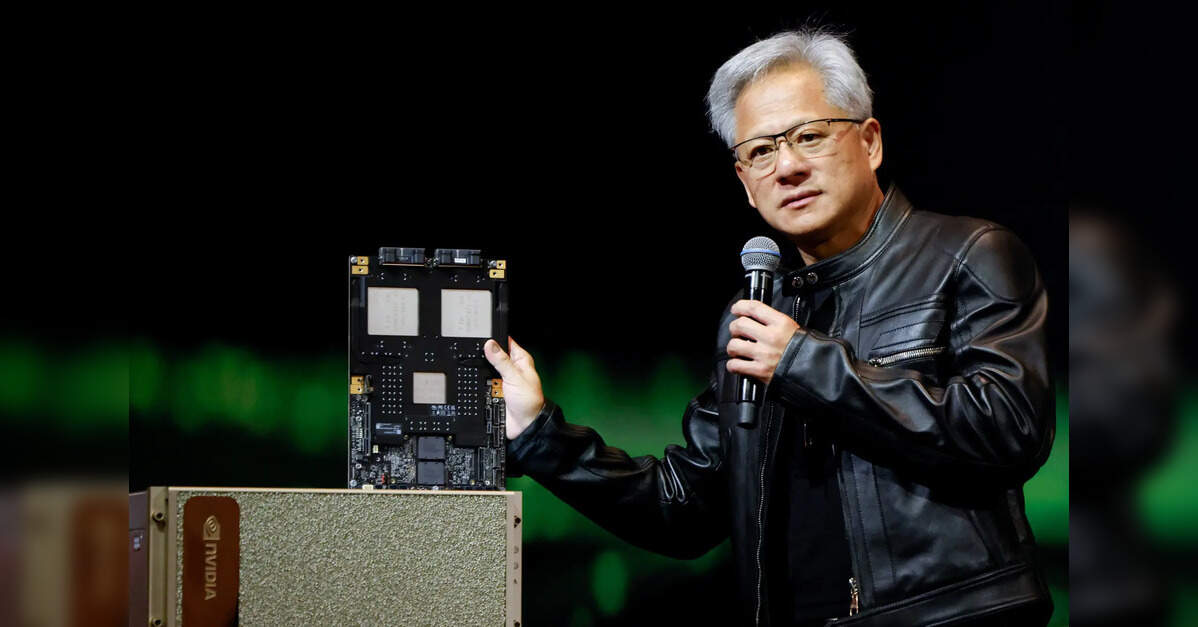Nvidia CEO Jensen Huang Advocates for 'Sovereign AI' Among European Leaders

Nvidia CEO Jensen Huang's advocacy for 'sovereign AI' has garnered significant attention and found strong resonance among European leaders. This concept, which Huang has championed since 2023, posits that each nation must develop and own its artificial intelligence capabilities, tailored to its unique language, knowledge, history, and culture. Sovereign AI encompasses both physical and data infrastructures, including sovereign foundation models like large language models, which are developed by local teams and trained on local datasets to promote inclusivity with specific dialects, cultures, and practices. Essentially, it aims to bolster a nation's ability to protect and advance its interests through the strategic use of AI.
The push for sovereign AI comes at a pivotal time when the European Union has recognized the imperative for robust AI infrastructure to achieve digital sovereignty. European leaders have openly expressed concerns regarding their continent's dependency on a handful of US tech companies and the implications for data privacy. Huang's recent tour through Europe's major capitals, including London, Paris, and Berlin, served to highlight the existing lack of AI infrastructure in the region, while also announcing a series of projects and partnerships designed to address this gap.
Nvidia is strategically positioning itself to fill Europe's AI infrastructure void by promising enhanced transparency and complete compliance with local data protection laws. Huang has even informed the EU executive that Nvidia intends to allocate some chip production to Europe for these emerging AI factories. This initiative is set to transform the European tech landscape, creating opportunities for local cloud providers, AI startups, and chipmakers as governments invest heavily in regional data infrastructure. Simultaneously, it ensures continued demand for Nvidia's cutting-edge AI chips, cementing its role as an essential player even as nations strive for technological self-sufficiency.
European nations and the EU have responded enthusiastically to this vision. In February, the European Union announced ambitious plans to build four "AI gigafactories" at an estimated cost of $20 billion, specifically aimed at reducing dependence on US firms. France has already seen a significant partnership between Mistral and Nvidia to construct a data center that will power the AI needs of European companies with a homegrown alternative, initially utilizing 18,000 of the latest Nvidia AI chips. Furthermore, in the UK, Prime Minister Keir Starmer announced £1 billion ($1.35 billion) in funding to scale up computing power, emphasizing a global race to be an "AI maker and not an AI taker." French President Emmanuel Macron has called building AI infrastructure "our fight for sovereignty," while German Chancellor Friedrich Merz has advocated for the digital sovereignty and economic future of Europe's top economy following Nvidia's plans to build an AI cloud platform in Germany with Deutsche Telekom. As Huang succinctly puts it, "AI is the essential infrastructure of our time, just as electricity and the internet once were," urging Europe to demonstrate bold leadership in shaping its innovation and prosperity for future generations.












